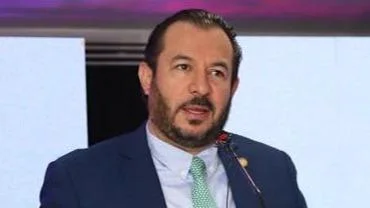After her grandmother, aunt, and four sisters were diagnosed with breast cancer, Ana María Donis Pérez was aware of her risk for the disease. She underwent a biopsy on December 27, 2024, which confirmed she also had breast cancer. "Sit down Ana María, I have to give you some news: you have breast cancer, but we are in time and you can be treated," she recalled her doctor saying.
Ana María expressed her fears about leaving her two children alone. Her diagnosis was grade two with a small tumor, allowing her to begin treatment promptly.
According to Dr. Noé Castro Sánchez, coordinator of Oncology at the Outpatient Clinic for Autonomy Diseases, early detection is key. "95% of patients manage to overcome the disease and continue with their lives," he explained.
Ana María's tumor was found during pregnancy. She regularly performed self-examinations and attended routine check-ups every six months before her diagnosis. Dr. Castro Sánchez recommends monthly self-exams five days after menstruation ends and annual mammograms after age 40.
Ana María thanked the Instituto Guatemalteco de Seguridad Social (IGSS) for their support: "Don't keep spending money on private clinics; come to IGSS to get cured; they cured me." She emphasized that any lump, indentation, change in shape or color, swelling, skin roughness or changes in the nipple should be checked by a doctor immediately.
Her treatment included eight chemotherapy sessions and removal of tissue from both breasts. Although no trace of the tumor was found during surgery, one out of twelve lymph nodes tested positive for cancer cells. She received five radiotherapy sessions and continues medication for a year with another surgery scheduled next year. "I feel fine. I do everything normally," she said.
"Agradezco al IGSS por acompañarme en este proceso, atenderme rápidamente, estar siempre atentos y darme una sonrisa cada vez que yo venía a una quimioterapia o consulta. Yo le pido a Dios que los bendiga porque son una esperanza de vida para muchas personas," Ana María stated. She added that support from her family helps her continue each day.
Currently, the Outpatient Clinic for Autonomy Diseases is treating 2,018 cases of breast cancer—143 more than in the same period in 2023 when there were 1,875 cases.
During Breast Cancer Awareness Month, Ana María sent this message: "Do your self-exam and go to your checkups every year or every six months; if you find any unusual lump it’s time to go quickly to IGSS for early treatment."
She concluded: "No tengo de qué quejarme, el IGSS ha sido todo, ha sido mi esperanza de vida y lo sigue siendo."

 Alerts Sign-up
Alerts Sign-up